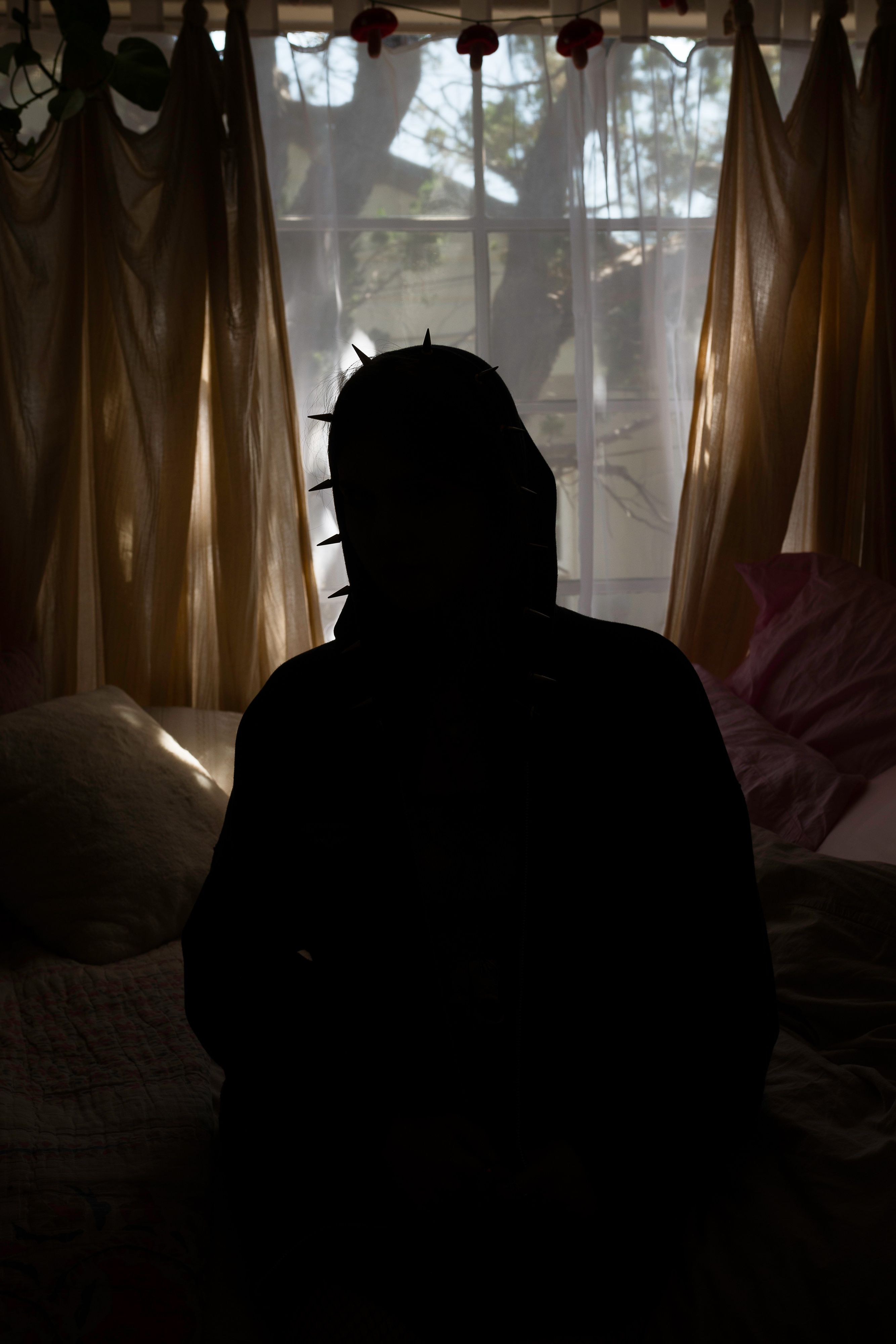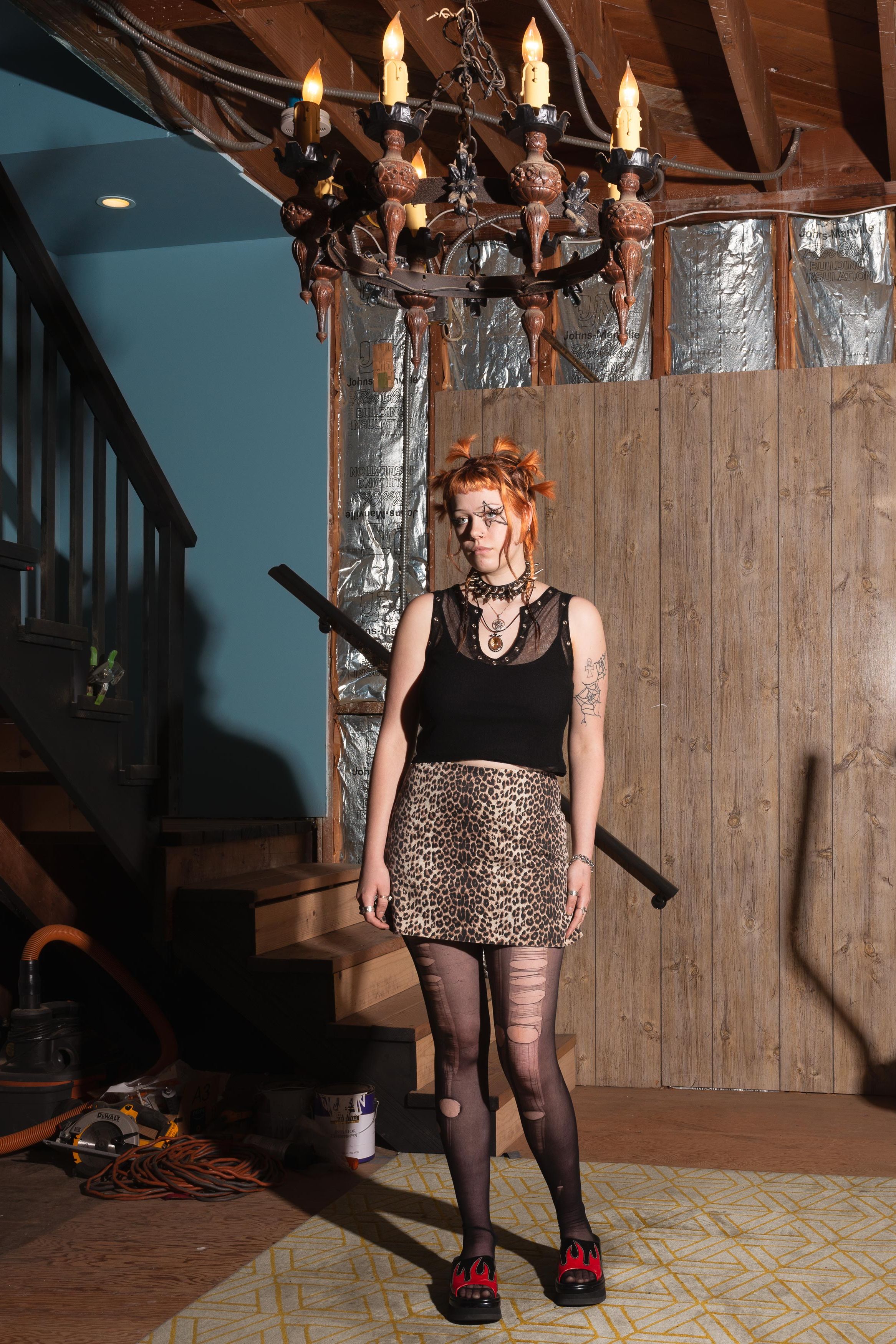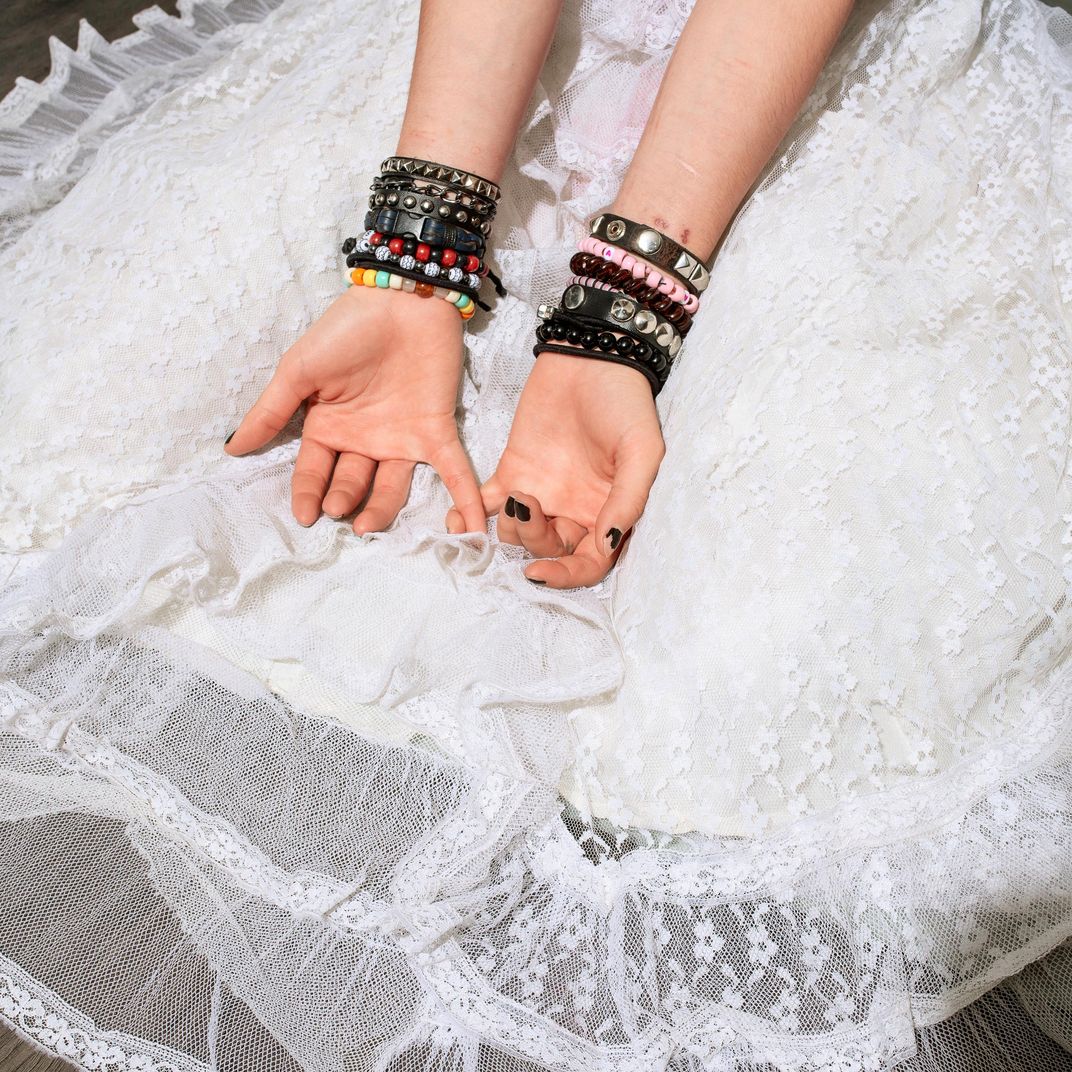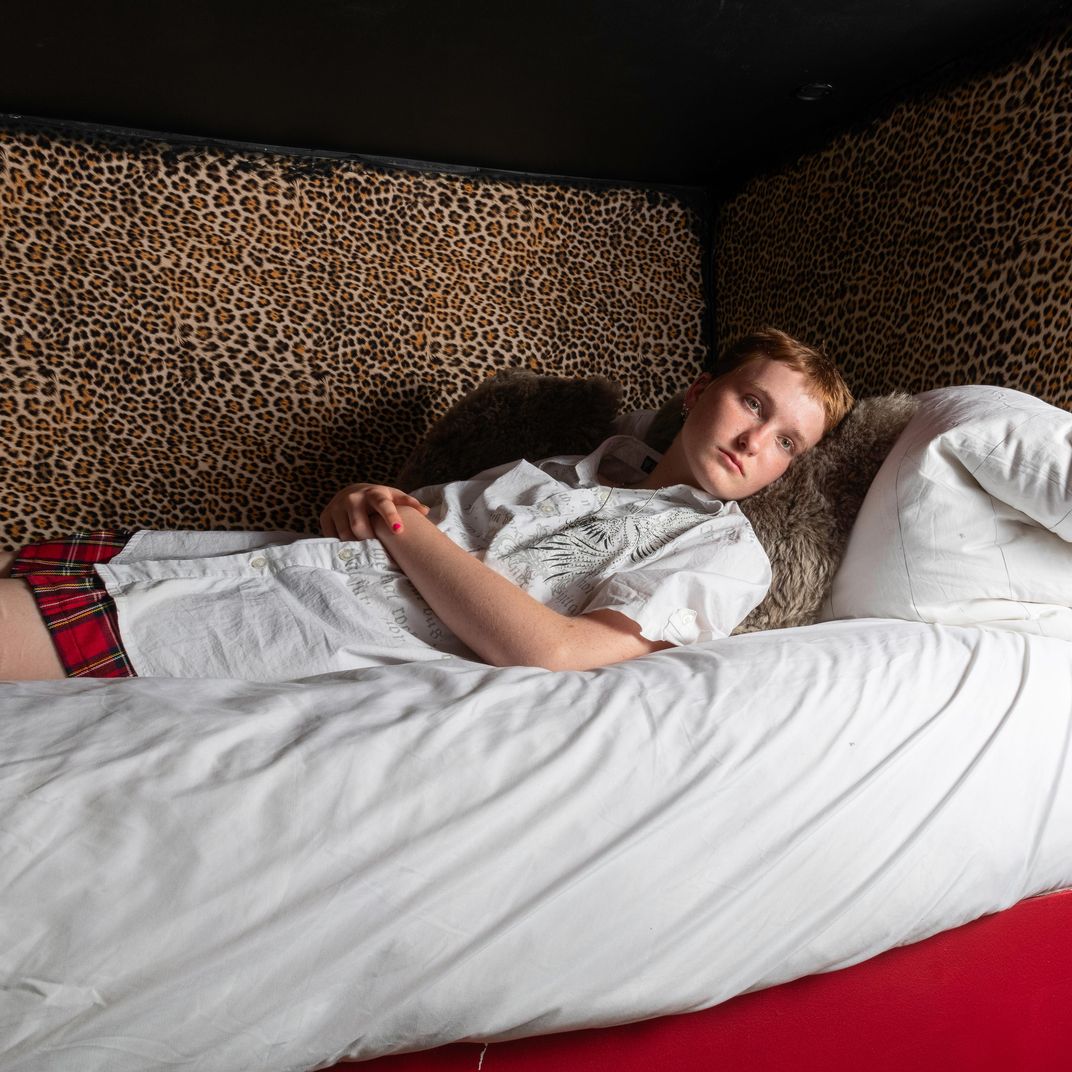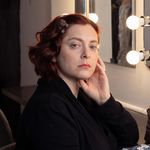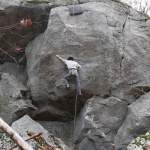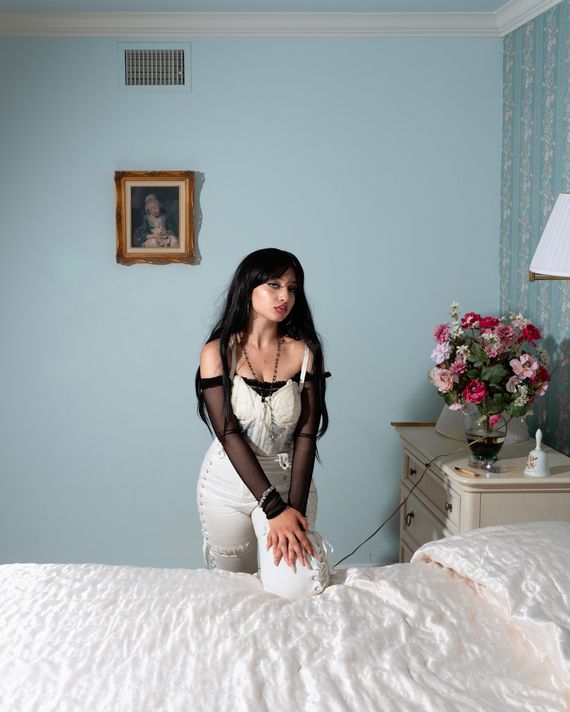
On a muggy September morning in the outskirts of Los Angeles, Benjamin Adams zipped their lacy white dress in preparation. With a painted face and a nude lip, Adams dropped into their artistic persona: Nightmare.
Adams, 19, has been cultivating this transcendent queer being for the past two years. For them, it’s a medium to embody the discomfort of a fluid self; a self that is unrestrained by gender, sexuality, cis-beauty expectations, or social rules. Nightmare says queerness is about so much more than who they desire. In fact, their persona is a direct challenge to these confines. “It’s upsetting to me that it’s just assumed that I’m attracted to a certain thing, because it limits who I’m allowed to love,” they say. “Being boundless with my gender helps me deal with being in a world that’s so binary. I can’t change the world, but I can change my world and the world around me.”
The pain of being a boundless queer person can be immense. Despite living in the liberal stretches of Southern California, Nightmare is one of hundreds of young queer people in Los Angeles who are fighting to honor their LGBTQIA+ multiplicity. They, along with many others in their generation, are asking, what exactly is queerness and how should we define it?
For this subculture, queer identity is about more than who you’re kissing. Their queerness emerges through their external expression. Painted faces, daggered jewelry, visible scars, dancing poles and spray-painted walls — through their nonlinear, arresting visual representation and their determination to live as open-hearted as the soul can bear, comes the extreme beauty of knowing oneself.
“I can be many people at once. I think a lot of people can get very scared of that, but it doesn’t have to be scary. For me personally, gender queerness is very liberating. I couldn’t live any other way. Honestly, same thing with my sexuality. I don’t label it at all and it’s changed throughout time. There’s infinite possibilities — why would you just want to be one person your entire life? I want to be everyone.”
“I’ve always kind of deviated from the norm and felt out of place, not only because of queerness, but because I have autism. Queer people definitely taught me how to accept myself as a person. The first time that I got accepted by any group of people was in queer spaces — I didn’t feel weird or out of place with my fashion. I finally have gotten to live that dream.”
“I think something that a lot of people within the community don’t fully understand is that gayness is not equivalent to queerness, whatsoever. There are a lot of gay people who are not queer. And, honestly, you could probably be queer without really identifying as anything to begin with. I think it is rooted in a spirit more than anything … it’s kind of an energy of a connected struggle or experience.”
“Sometimes I don’t even like when I identify as a woman, I just want to be like, I’m just Parys and make Parys a gender because the way that I live is so different than anybody else. With my queerness and my gender, I feel like I have a big individuality complex. Like why should I worry about what other voices are telling me about how I feel and how I express myself?”
“I can be many people at once. I think a lot of people can get very scared of that, but it doesn’t have to be scary. For me personally, gender queerness is very liberating. I couldn’t live any other way. Honestly, same thing with my sexuality. I don’t label it at all and it’s changed throughout time. There’s infinite possibilities — why would you just want to be one person your entire life? I want to be everyone.”
“I’ve always kind of deviated from the norm and felt out of place, not only because of queerness, but because I have autism. Queer people definitely taught me how to accept myself as a person. The first time that I got accepted by any group of people was in queer spaces — I didn’t feel weird or out of place with my fashion. I finally have gotten to live that dream.”
“I think something that a lot of people within the community don’t fully understand is that gayness is not equivalent to queerness, whatsoever. There are a lot of gay people who are not queer. And, honestly, you could probably be queer without really identifying as anything to begin with. I think it is rooted in a spirit more than anything … it’s kind of an energy of a connected struggle or experience.”
“Sometimes I don’t even like when I identify as a woman, I just want to be like, I’m just Parys and make Parys a gender because the way that I live is so different than anybody else. With my queerness and my gender, I feel like I have a big individuality complex. Like why should I worry about what other voices are telling me about how I feel and how I express myself?”
Nightmare finds themself in the darkest wigs possible, lengthy press-on nails, ornate gothic crosses, and a tattoo reading superstar spread across their chest. Adams feels the fullness of themself within Nightmare, but it can be exhausting. They often reflect about what life is like for people who don’t experience identity in such extremes and “aren’t so painfully self-aware.”
“I wonder if they have it easier, if they even know what they’re missing out on,” they say. “People like me experience beauty at such a profound level. I’m sure that certain people can’t ever experience it. I don’t think that that makes me better at all, it’s just different.”
I began to meet and photograph this group of over 70 queer youths in the fall of 2021. I had no idea they would change my life. Coming into my own identity in my freshman year of high school, I felt confused and lost within the rigidity of LGBTQIA+ labels of the 2010s. I was limited to choosing between “lesbian” and “bisexual,” but neither felt encompassing for me. Back then, these words were culturally understood as wholly contingent on who one wanted to have sex with or who they desired. I found myself attracted to all expressions of genders and sexuality, while simultaneously experiencing discomfort in my assigned femininity. This left me with seemingly nowhere to turn to make sense of myself.
“People used to tell me all the time in high school, ‘Wow, that’s so great that you get to dress up like this, I wish I could do that.’ And this still does happen to me as an adult. And I’m like, ‘You can.’ But it sucks because not everyone has a safe space to do that. People are so afraid to be themselves and it’s really disheartening. It breaks my heart an infinite amount of times. I don’t know how I would be if I couldn’t express myself like I do. But that also drives me to be who I am even more because I’m like, ‘I’mma do it for the bitches who can’t, right?’”
“There’s so much more to the queer experience. There’s all this pain that we go through, and it doesn’t just start when you start being attracted to people. I remember carrying this pain as a 5-year-old, 6-year-old. Some part of me knew this shit. It was just there. And people don’t recognize that.”
“It’s really sad when a community that’s built off of people being their uncensored selves wants to police each other. The community at large exists as a response to people on the other side doing the same thing to us.”
“In a big city like Los Angeles, it’s really normal [to be queer]. Recently, I feel like everyone’s kind of figuring out who they are. I’ve tried not to have others persuade me into something else. It’s really important not to hide who you really are. That will just dig a deeper hole, and in the end you’ll be confused.”
“People used to tell me all the time in high school, ‘Wow, that’s so great that you get to dress up like this, I wish I could do that.’ And this still does happen to me as an adult. And I’m like, ‘You can.’ But it sucks because not everyone has a safe space to do that. People are so afraid to be themselves and it’s really disheartening. It breaks my heart an infinite amount of times. I don’t know how I would be if I couldn’t express myself like I do. But that also drives me to be who I am even more because I’m like, ‘I’mma do it for the bitches who can’t, right?’”
“There’s so much more to the queer experience. There’s all this pain that we go through, and it doesn’t just start when you start being attracted to people. I remember carrying this pain as a 5-year-old, 6-year-old. Some part of me knew this shit. It was just there. And people don’t recognize that.”
“It’s really sad when a community that’s built off of people being their uncensored selves wants to police each other. The community at large exists as a response to people on the other side doing the same thing to us.”
“In a big city like Los Angeles, it’s really normal [to be queer]. Recently, I feel like everyone’s kind of figuring out who they are. I’ve tried not to have others persuade me into something else. It’s really important not to hide who you really are. That will just dig a deeper hole, and in the end you’ll be confused.”
Children are often introduced to queerness as an act of sex and desire between themselves and another queer body. Within this heteronormative label comes the insidious lack of recognition that one’s queerness is their own — living and breathing within them — no matter attraction or intimacy. I held extreme fear within me that if I wasn’t proving myself to be a proper “lesbian” or “bisexual,” parading around my intimate exchanges, my so-called community would reject me. Evidently, this community never actually felt like one I could relax within and lean upon.
Although each person I’ve documented in this photo series invited me deeper into their subculture, I felt like an outsider peeking into a mysterious world that hadn’t previously been offered to me. These young people, who range in age from 15 to 28, seemed unwavering in their loud outfits, striking makeup and unkempt bedrooms. Initially, I could see glimmers of myself reflected back to me, but ultimately the insecurity about my lack of self discovery left me feeling detached.
Halfway into the project, I began to verbalize my curiosities and internal pains surrounding the identity limits thrust upon me as a teenager. To my surprise, I was heard and held. We began to share our stories of grief and frustration, love and compassion. Where previous generations faltered, this generation is embracing the expansiveness of being queer.
“Once I was able to explore the world of gender more, it became so much more than trying to figure out my attraction, that’s not even something that I care about anymore. I just know myself as queer. And that’s who I am. I feel like the ways that I express myself the most are visually or in connection to things that are related to fantasy.”
“I feel like pain is so valuable. You really have to hurt sometimes in order to get on with your life. You’re in pain, and you’re in that part of life where you don’t know what’s going on, and you’re just crying and hating all the time — that is so healthy.”
“We’re dating, we could look straight, it can be invalidating sometimes, but we found this really beautiful community in Long Beach,” says Valentine. “Everyone’s super accepting and understanding, and gay and queer. But it was never that easy. It’s hard to find the right support.”
“I would be totally surprised if the universe spit out a 100 percent non-queer person,” Zaine says. “That’s as likely as a miracle … or winning the lottery 20 million times in a row. Of course there’s going to be queerness, just like of course there is going to be dirt.”
“Once I was able to explore the world of gender more, it became so much more than trying to figure out my attraction, that’s not even something that I care about anymore. I just know myself as queer. And that’s who I am. I feel like the ways that I express myself the most are visually or in connection to things that are related to fantasy.”
“I feel like pain is so valuable. You really have to hurt sometimes in order to get on with your life. You’re in pain, and you’re in that part of life where you don’t know what’s going on, and you’re just crying and hating all the time — that is so healthy.”
“We’re dating, we could look straight, it can be invalidating sometimes, but we found this really beautiful community in Long Beach,” says Valentine. “Everyone’s super accepting and understanding, and gay and queer. But it was never that easy. It’s hard to find the right support.”
“I would be totally surprised if the universe spit out a 100 percent non-queer person,” Zaine says. “That’s as likely as a miracle … or winning the lottery 20 million times in a row. Of course there’s going to be queerness, just like of course there is going to be dirt.”
“There’s so much more to queerness than just relationships and sex, and all of that shit,” Sand, then 17, told me. “I remember the first time I came out as bisexual to my mom, I must have been 12 or 11. She told me, ‘You haven’t had sex, how would you know that? Come back to me when you’ve had sex.’”
Sand continued: “It was really funny, in the summer after eighth grade I came out to my mom again. This time she believed me because I had a girlfriend. I didn’t want to validate that line of thinking. She was trying to invalidate my queerness by reducing it to just sex … It’s just really hurtful.”
These kids are over it. They aren’t going to settle for what they’ve been handed. In harnessing bravery and vulnerability, they honor their truth, no matter how uncomfortable or confusing it may be to others. They’re here to legitimize their own experience, to revolutionize the word queer as inherent to their being. Each person may not know the radical power they possess in full, but collectively they have begun to expand the social understanding of queerness beyond the limitations of desire.



